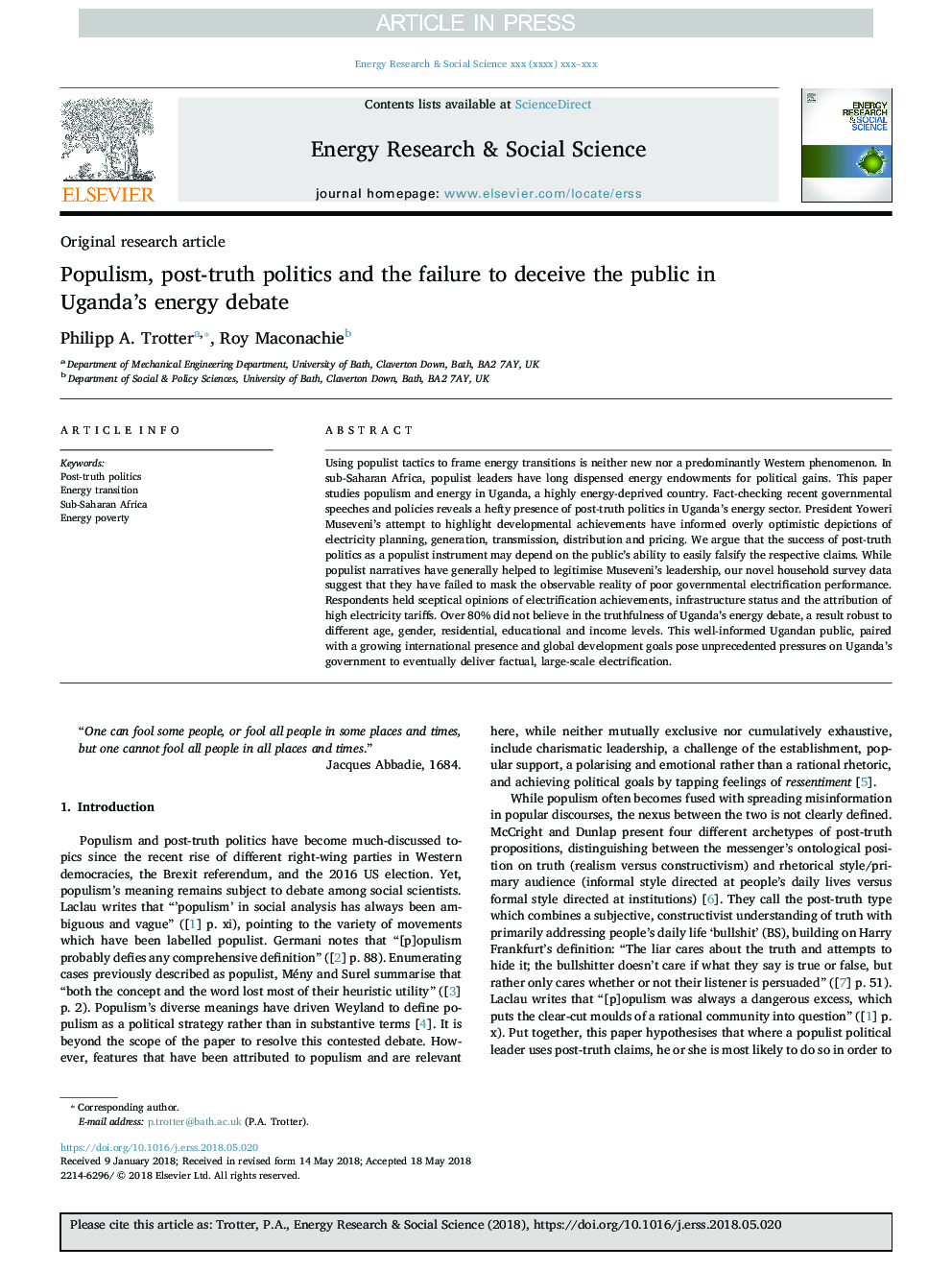| Article ID | Journal | Published Year | Pages | File Type |
|---|---|---|---|---|
| 8953312 | Energy Research & Social Science | 2018 | 16 Pages |
Abstract
Using populist tactics to frame energy transitions is neither new nor a predominantly Western phenomenon. In sub-Saharan Africa, populist leaders have long dispensed energy endowments for political gains. This paper studies populism and energy in Uganda, a highly energy-deprived country. Fact-checking recent governmental speeches and policies reveals a hefty presence of post-truth politics in Uganda's energy sector. President Yoweri Museveni's attempt to highlight developmental achievements have informed overly optimistic depictions of electricity planning, generation, transmission, distribution and pricing. We argue that the success of post-truth politics as a populist instrument may depend on the public's ability to easily falsify the respective claims. While populist narratives have generally helped to legitimise Museveni's leadership, our novel household survey data suggest that they have failed to mask the observable reality of poor governmental electrification performance. Respondents held sceptical opinions of electrification achievements, infrastructure status and the attribution of high electricity tariffs. Over 80% did not believe in the truthfulness of Uganda's energy debate, a result robust to different age, gender, residential, educational and income levels. This well-informed Ugandan public, paired with a growing international presence and global development goals pose unprecedented pressures on Uganda's government to eventually deliver factual, large-scale electrification.
Related Topics
Physical Sciences and Engineering
Energy
Energy (General)
Authors
Philipp A. Trotter, Roy Maconachie,
